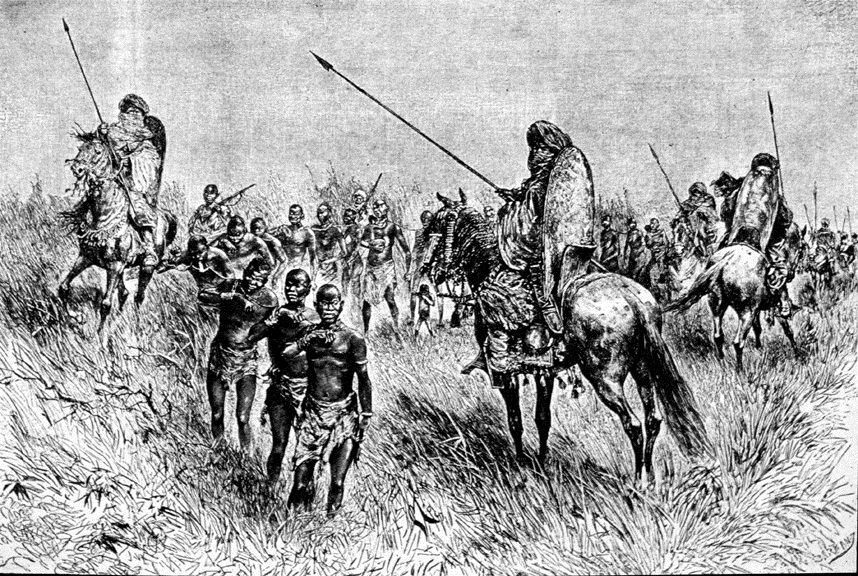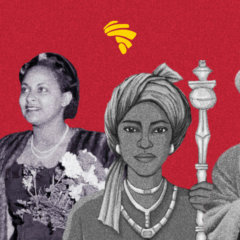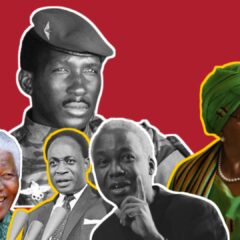Few empires in medieval Africa have persevered for so long like the Kanem-Bornu empire.
Spanning about 777,000 km² at its greatest extent, Ahmad al-Ya’qubi, a historian of the Abassid Caliphate, called it one of the greatest empires of Sudan.

The history of the Kanem-Bornu empire is one of endurance, military prowess, and economic ventures that would be seen today as cruel.
It played crucial roles in the history of Africa, being the major transaharan route to Tripoli –a slave trading empire and a constantly warring state.
Origin
The origin of this empire is unclear but several scholars propose that Kanem was formed by Tebu nomads seeking fertile lands and driven away by political pressure. These nomads took the area from the Sao though war between them and Sao continued well into the 14th century.
The Duguwa Dynasty
Before Islam was introduced, Kanem was ruled by the Duguwa dynasty which lasted for about 300 years (700Ad to 1086Ad). This dynasty ruled the Kanuri, which included the Ngalaga, Kangu, Kayi, Kuburi, Kaguwa, Tomagra and Tubu. The kings of this dynasty were believed to be gods that were so powerful that they had power over life and death.
According to Kanuri tradition, Dhi Yazan was the first Mai of Kanem but this is widely contested by several historians.
Richard palmer, a well informed colonial administrator, called Dhi Yazan a myth and alleged that Dugu Bremmi was the first Mai of Kanem.
The empire of Kanem at this period was described by Al Yaqubi as filled with huts made of reeds and having a powerful calvary and they were mostly nomadic.
Advent Of Islam (Rise Of The SAYFAWA Dynasty
In the 9th century, the Kanuri speaking muslims seized power from the Duguwa’s establishing their own dynasty called the Sayfawa. Slavery peaked under Muslim rule. The Kanem empire sold at least 5000 slaves a year from the initial 1000 slaves benchmark. The first Muslim king, Mai Humai, was less popular than his successor Dunama Dabbalemi.
Mai Dunama (1098-1151) was a fervent Muslim. Known by Tunisian Historiographers as King of Kanem and Lord of Bornu, he established ties with the kingdoms of North Africa, declared a Holy war on his neighbors and expanded the empire to the Fezzan region. A Kanem embassy was established in Tunisia around 1257, as mentioned by the famous Andalusian historian Ibn Khaldun.
Despite his military successes, his rule brought strife in the empire, especially with his hardline stance against pre-islamic beliefs. His destruction of an Ancient artifact called the Mune was problematic and he assigned the conquered regions to the general who conquered them creating a nepotistic tendency which persevered even after his death.
Decline Of Kanem
By the end of the 14th century, the Kanem empire was greatly weakened by civil strife and attacks from the Sao and Bilala people. A total of four kings were killed by the Sao and another four by the Bilala.
By 1387, the Bilala had Conquered most of Kanem and drove the Sayfawa dynasty to Bornu (present day northeast Nigeria) where they established the Bornu empire.
After their defeat, the house of Sayfawa, which ruled Kanem and now Bornu, divided into two rival branches constantly vying for power. This led to constant palace strife within the court. the struggle was so fierce that up to 15 kings occupied the throne at the beginning of the 15th century. However, in 1460, this came to an abrupt end when king Ali Gazi killed his rivals and ascended to the throne. His reign played a significant role in Bornu’s history. He built a new capital called Ngazargamu, an area far more suited for agriculture and grazing than their former capital, and went to war with the Bilala nomads once more, recapturing Njimi.
Despite seeing agriculture as profitable, the Bornu empire still relied heavily on slavery as a source of revenue. They traded mostly with the Ottoman empire and their major source of slaves were the tribes on the south of Lake Chad who were referred to as infidels. Along its slave routes are thousands of skeletons belonging to dead slaves. It is estimated that about two million slaves were shipped off from Bornu to Tripoli (the largest slave market in the Mediterranean).

Rise Of Bornu (Mai Idris Alooma)
During the reign of Idris Alooma, Ngazargamu was the center for Islamic education. He built several mosques and sponsored trips to mecca. He is considered to be one of the greatest rulers of the Bornu empire. Famed for his military prowess, King Idris was responsible for the expansion of most of the Bornu Territory, Conquering the Hausas, the Tuareg and the Ahir. Alooma made many military reforms. He introduced the Armored Calvary, established permanent military camps, practiced scorched earth tactics, and constructed large war boats. His reformations didn’t stop there. He made many economic changes too; helping farmers move to more fertile lands, introducing a new and standard system of measurement for farmers. Under his rule, many products were imported to the North, including Sodium carbonate, cotton, kola nuts, ivory, ostrich feathers, perfume, wax, and hides, but the most profitable trade was with slaves.
Decline Of Kanem Bornu (Fall Of The SAYFAWA Dynasty)
Alooma’s reforms had strengthened the Empire but by the 18th century, plagued by lasting famines, the empire’s strength began to dwindle. It was also at this period that Usman Dan Fodio waged a jihad against the Hausa kingdoms and later, the Bornu empire. Usman defeated their main army, captured Ngazargamu, and burnt it to the ground. The Mai (King) of Bornu sought help from Al-Kanemi, a religious leader, who fought Usman not only with words but by engaging him in a series of theological and political debates and challenging the legitimacy of his jihad. Al-Kanemi would Later weasel his way to the throne and replace the house of Sayfawa, ending the longest dynasty to rule Bornu.
The FALL
Against all odds, the Bornu empire rose again and retook most of it’s territory and even conquered new lands. It is considered to be among the longest lasting empires in Africa, surviving into the 19th century till it was conquered by Rabih az-Zubayr who was defeated by the French. The Kanem-Bornu Empire was carved up with most of its territory handed to the French and Bornu given to Britain.
Still in search for more African/ Nigerian history? Read about the walls of Benin, an African wonder lost without trace.






